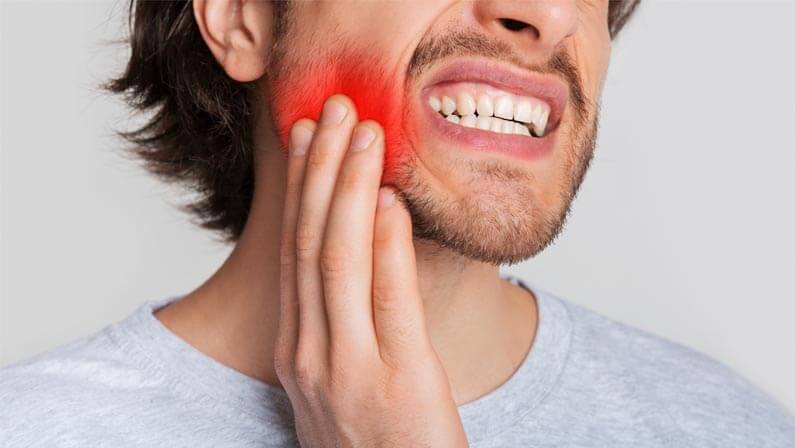When it comes to dental health, most people know that they should visit their dentist regularly for checkups and cleanings. However, some people may try to take care of their own teeth by pulling a tooth that is causing them pain. While this may seem like a good idea, in theory, there are several dangers associated with pulling your own tooth.
Is It Safe to Pull Your Own Tooth

When it comes to tooth extraction, there are generally two ways to go about it: a dental professional can do the dental work for you, or you can do it yourself. The first option is obviously going to be more costly, while the second one offers the potential for savings – but is it safe? In general, yes, self-tooth extraction is considered safe. However, there are some risks involved that you should be aware of before deciding whether or not to go this route.
What Happens if You Pull Your Tooth Out
The tooth is anchored in the jawbone by a ligament. If you pull your tooth out, the ligament will be stretched and the tooth socket will start to close. This could damage the ligament and cause pain. If the tooth socket closes before the dentist can put a dental implant in it, you may need surgery to reopen the socket.
Here are some dangers you should be aware of:
It Increases the Risk of Infection
There are a few reasons why pulling your own tooth can increase your risk of infection. When you pull a tooth, you are essentially tearing the tissue in your mouth. This can cause bacteria to spread in the open wound and lead to infection.
Additionally, if the tooth is not removed properly, pieces of the root can remain in the gum tissue. These pieces can also become infected and cause problems.
Finally, when you pull your own tooth, you may not be able to see all of the debris that is left behind. This can lead to infection as well.
It Might Not Actually Help

For one, if the tooth is deeply embedded in the gums, it might be difficult to remove.
Additionally, if you’re not experienced in doing this type of extraction, you could damage the surrounding tissue or even sever the tooth’s root.
Finally, even if you are successful in removing the tooth, there is a good chance that the wound will become infected.
Your Dentist Might Be Able to Save the Tooth
Pulling your own tooth forfeits your chance that a dentist might be able to save them. A dentist is likely to have more experience in extracting teeth than you are and is, therefore, more likely to be successful.
If you remove the tooth improperly or damage surrounding tissues, it could make it more difficult for the dentist to complete the extraction. Moreover, if you have dental insurance, your policy may not cover the cost of an extraction performed by a dentist if you have previously extracted the tooth yourself.
It Can Cause Further Damage
For one, if the tooth is not completely extracted, there is a risk of leaving part of the root in the jawbone. This can lead to further infection and bone loss in the area.
Additionally, when you pull a tooth yourself there is a greater chance of damaging surrounding teeth and gums.
Finally, it’s difficult to get a good grip on a tooth and remove it without causing pain and possible injury to the mouth.
Pulling Your Own Tooth is Painful

Why does pulling your own tooth cause pain? When you tug at a tooth, the ligaments, blood vessels, and nerves that hold it in place are stretched. This can cause pain not only in the tooth itself but also in the jawbone and surrounding tissues.
You Won’t Be Solving the Underlying Issue
When you have a toothache, the typical solution is to go to the dentist and have them pull the tooth. This is done for a few reasons: it’s faster than doing a root canal, it’s cheaper than doing a root canal, and it’s less painful than doing a root canal. However, there are some people who believe that they can solve the underlying problem by pulling their own teeth.
While this may work in some cases, it’s not a good solution for everyone. In fact, it can actually make the underlying problem worse. When you pull your own tooth, you may damage the roots of the tooth or even break the jawbone. You may also cause an infection by leaving part of the tooth still in your mouth.
If you have a toothache, it’s best to see a dentist and have them pull the tooth.
You Can’t Prevent Jawbone Deterioration
There are many myths about oral health, and one of them is that pulling your own tooth will prevent jawbone deterioration. The truth is that this is not the case. In fact, pulling your own tooth can actually cause more damage to the jawbone.
When a tooth is pulled, it creates a space in the jawbone that can fill with bacteria. This can lead to infection and bone deterioration. Additionally, when a tooth is pulled, the surrounding bone tissue can weaken and break.
If you are experiencing jawbone deterioration, it is best to see a dentist for treatment. There are many treatments available that can help restore the health of the jawbone.
How to Deal With Tooth Pain at Home
There are many ways to deal with tooth decay and pain at home as follows:
- Over-the-Counter Painkillers: The most common way to treat an aching tooth at home is through over-the-counter pain killers such as ibuprofen and acetaminophen.
- Ice Packs: Put an ice pack on your cheek over the area of the toothache. Leave it on for 10-15 minutes. You may need to repeat this a few times throughout the day.
- Warm Salt Water Rinses: To perform a salt water rinse, dissolve one teaspoon of salt in a cup of warm water. Swish the rinse around your mouth for thirty seconds and then spit it out. Repeat three times a day until the pain subsides.
- Clove Oil: Clove oil is a natural analgesic and can help to numb the area around the tooth. Clove oil can be purchased at most pharmacies or health food stores.
- Toothpaste: Toothpaste contains ingredients like baking soda and hydrogen peroxide that can help to alleviate pain and inflammation. Put a small amount of toothpaste on your finger and rub it around the affected area. You can also put a small amount of toothpaste in a cup and use it as a mouth rinse.
- Antibiotics: Some people take antibiotics by mouth, while others put them on the gums or in the mouth near the aching tooth. There are also antibiotic drops that can be put into a water bottle and used as a mouth rinse.

When Is It OK to Extract My Own Tooth?
Extracting your own tooth is a bad idea in most cases. That’s because you may not be able to get the tooth out in one piece. You may also damage the bone of your jaw and lose some of your front teeth. It’s always best to visit your dentist for a root canal or a crown.
Final Thoughts
There are many dangers associated with pulling your own tooth. If you are experiencing tooth pain, please see a dentist as soon as possible. There are many safe and effective ways to treat tooth pain, and pulling your own tooth is not one of them.
If you are in Houston, Texas, and looking for immediate dental treatment, contact Brownstone Dental. We offer a wide range of dental services to our patients including preventative dentistry, restorative dentistry, and cosmetic dentistry. Our staff is trained to provide you with the most up-to-date treatments, and we will be happy to answer any questions you may have.